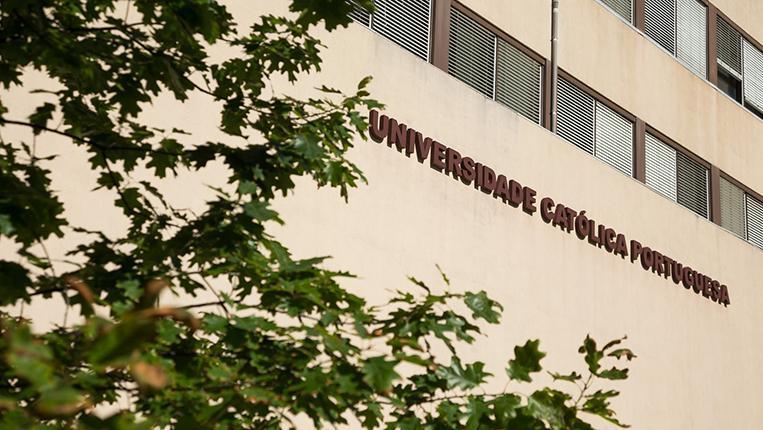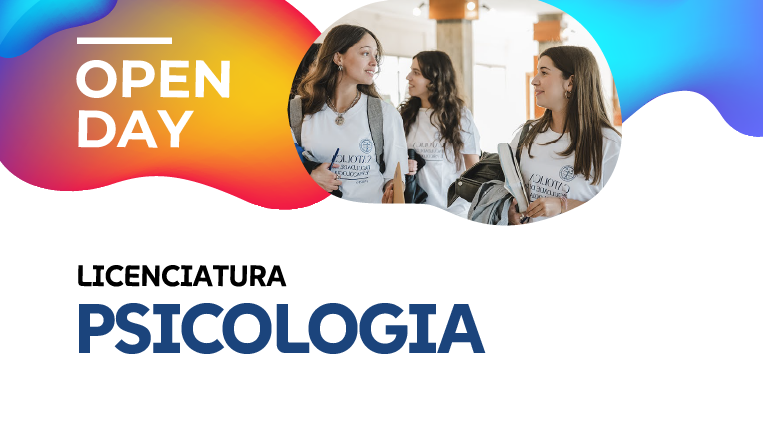
The exam season is fast approaching, and with it comes the challenges of time management and long hours of studying. To help you face this time more calmly and effectively, three psychology undergraduate students share their successful strategies for optimising your study routine. From the importance of sleep and nutrition to time management and choosing the ideal study method, these tips will help you face exams with confidence.
Matilde Marques, 3rd year psychology undergraduate Student
Tip #1: “Prioritise sleep and nutrition”

Matilde Marques, a third-year psychology undergraduate student, stresses the importance of sleep and nutrition for academic performance. Matilde says: "It's important to get a good night's sleep, with good quality sleep and a fixed bedtime. The quality of your sleep affects your concentration, attention and reasoning, and has an impact on your ability to remember and consolidate what you're studying.”
Matilde also explains that it is during sleep that memories are consolidated, making a regular sleep schedule essential for learning. Sleep deprivation, on the other hand, can affect the ability to solve problems and make associations, raising the crucial question: “To study or to sleep?”. To delve deeper into this topic, Matilde suggests an enlightening Ted Talk on the effects of sleep deprivation on the brain: What staying up all night does to your brain - Anna Rothschild
Diet also plays an important role. A healthy, balanced diet helps to improve concentration and optimise cognitive function. Matilde recommends "paying particular attention to eating foods rich in carbohydrates with a low glycaemic index, such as whole grains, vegetables and legumes, as well as foods rich in essential fatty acids, such as salmon, tuna and nuts".
Tip #2: "Set SMART goals and plan your study”
Matilde also shares a second tip: the importance of planning and organising your study. It is essential to set long-term SMART (Specific, Measurable, Attainable, Realistic, Time-bound) goals and make a plan based on these goals. It's also important to organise your study into realistic daily goals and plan the content to be studied. Breaking down the content into smaller chunks will help to better outline the daily tasks and identify the areas that need the most attention. Time management is crucial, especially if you have several exams coming up.
To optimise studying, Matilde advises:
- Identify and eliminate sources of distraction. One of the things that can distract you is your mobile phone, for example.
- Plan your study time.
- Take breaks and divide your study time over several days.
In addition, the student suggests two Ted Talks on effective studying and secrets to faster learning based on neuroscience, and a book on self-regulation of learning in higher education:
- 3 tips to study effectively
- Brain Hack: 6 neuroscience-based secrets to learning faster
- Book “Cartas do Gervásio ao seu umbigo – ensino superior” (“Letters from Gervásio to his Navel - Higher Education”)
Inês Reis, 3rd year psychology undergraduate student
Tip #3: “Choose your ideal study space”

Inês Reis, also a third-year psychology undergraduate student, adds another valuable tip on choosing the ideal study space: "The place where we study has a significant impact on our performance and productivity. You can look for a quiet, distraction-free space with access to natural light that allows you to concentrate on your studies.”
Inês reminds us that the university offers different study spaces, from the library to the study room, so it's important to find the one that best suits your individual needs.
Tip #4: "Discover your study method
Inês' other tip focuses on choosing the most suitable study method: “You can choose summaries, mind maps, the Pomodoro method or practical exercises. Finding the study method that best suits your needs is essential to achieving better results.” An effective method will maximise your study time and help you understand and retain the material. Active learning techniques, such as those mentioned above, help to consolidate knowledge and identify areas that need more attention.
Gabriela Pinho, 3rd year psychology undergraduate student
Tip #5: 'Balance your studies with your free time

Gabriela focuses on a fundamental perspective: the balance between study and leisure. “Finding a balance between social life and study time is essential for your well-being and academic success," she says. The student suggests creating a weekly schedule with specific times for study and leisure, prioritising tasks and using techniques such as the Pomodoro technique to optimise productivity. This technique consists of studying for 25 minutes followed by a 5-minute break, which helps to maintain concentration and avoid burnout!
Combining studying with socialising, forming study groups and taking moments to relax are also important strategies. “Respecting your limits and disconnecting from distractions while studying is also key to making the most of your time and maintaining that harmony between the different areas of your life," she adds.
Bonus tip: “Deepen the Feynman method”
Gabriela also offers an additional tip, suggesting the Feynman method. “This method consists of explaining the subject simply and clearly, as if you were teaching it to someone else,” she explains.
To understand this method in more detail, she suggests watching the video The Feynman Technique.
Conclusion: “It's time to act!”
Now that you have these practical tips, all you need to do is apply them to build an effective study routine and achieve the success you deserve. Take the opportunity to get organised, take care of yourself and do your best! Good luck with your exams!
You can also watch these tips in video format on our Faculty's social networks.
NOTE: The article has been academically reviewed by CLIL | Católica Learning Innovation Lab.



